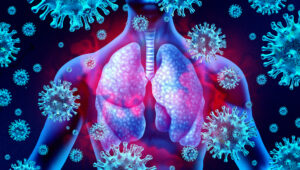
By now there is no question that the coronavirus and COVID-19 have taken an immense toll in almost e very country on earth.
With constant talk of vaccines and recoveries, many Americans are hopeful, while others are still learning to deal with the long-term effects of the virus and what returning to normal after the pandemic could look like.
While most persons with COVID-19 recover and return to normal health, some patients can have symptoms that can last for weeks or even months after recovering from an acute illness.
According to a statement from the Centers for Disease Control and Prevention, “Even people who are not hospitalized and who have mild illness can experience persistent or late symptoms. Multi-year studies are underway to further investigate. CDC continues to work to identify how common these symptoms are, who is most likely to get them, and whether these symptoms eventually resolve.”
Some of the most commonly reported long-term symptoms can include fatigue, shortness of breath, cough, joint pain and chest pain. Some other symptoms are difficulty with thinking and concentration, depression, muscle pain, headache, intermittent fever and fast-beating or pounding heart have all been reported.
Samuel McNeal , a 43-year-old native of nearby Jackson County, marketing strategist, believes that more effort should be made when it comes to the study of long-term effects of COVID-19.
“When I contracted COVID-19 I was both scared and afraid of what my fate would be,” McNeal said. “Now even after I thought that I had fully recovered, I’ve discovered that some symptoms still have persisted and so has my fear.”
More serious long-term complications appear to be less common but have been reported. The more serious symptoms have been noted to affect different organ systems in the body.
One person who did not wish to be identified says that she’s still battling loss of smell long after she tested negative for the virus.
“The moment I realized I may never smell again was one of the most life-changing experiences I’ve ever had,” she said. “I thought I had managed to overcome the hardest part of COVID-19 but it inevitably left its mark on me in more ways than one.”
She says that she also lost her aunt to the deadly virus.
The CDC continues to recommend that the best strategies for preventing COVID-19 infection are to wear a mask in public places, stay at least six feet away from other people, frequently wash your hands, and avoid crowds and confined or poorly ventilated spaces.
The CDC has said it will continue active investigation and provide updates as new data emerge, which can inform COVID-19 clinical care as well as the public health response to COVID-19.